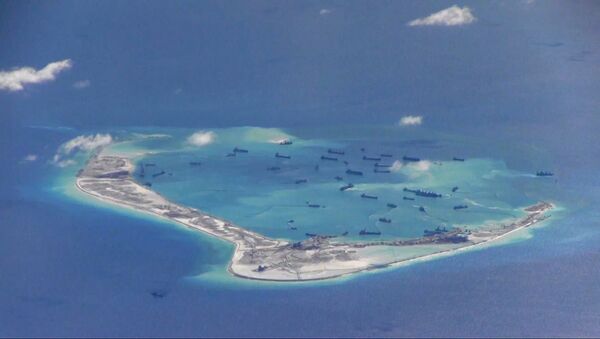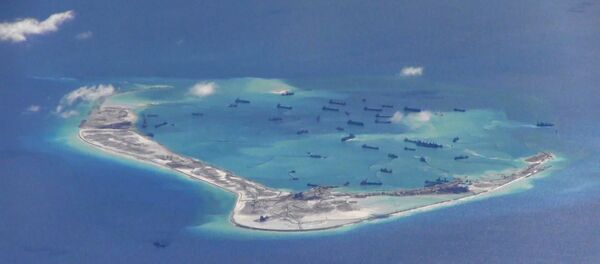A joint statement issued after the meeting between Indian Prime Minister Narendra Modi and US President Donald Trump’s maiden meeting on Monday in the White House said the two sides will forge close ties to ensure peace and stability in the Indo-Pacific region.
“As responsible stewards in the Indo-Pacific region, President Trump and Prime Minister Modi agreed that a close partnership between the United States and India is central to peace and stability in the region,” the joint statement read.
In their discussion, Modi and Trump reiterated their commitment to the “tenets outlined in the UN Charter, they committed to a set of common principles for the region (Indo-Pacific), according to which sovereignty and international law are respected and every country can prosper.”
Both India and the US will strive to ensure “the importance of respecting freedom of navigation, overflight, and commerce throughout the region; call upon all nations to resolve territorial and maritime disputes peacefully and in accordance with international law”.
“If you read the joint statement clearly, both President Trump and PM Modi talked about North Korea, Afghanistan, Middle East and even the South China Sea. The statement stresses on the world ‘Indo-Pacific’ which indicates that the US is ready to accept India’s centrality to maintaining security in the region; to ensure that a rules-based international system is maintained in the Indo-Pacific region, which clearly hints at China. This is significant especially since it shows that the US remains committed to maintaining power equilibrium,” security analyst Nitin Gokhale said during a panel discussion on CNN-News18.
The joint statement has come a day after a Chinese foreign ministry spokesperson warned both the US and India to not meddle in the South China Sea.
Moreover, tension has risen on the India-China border near Sikkim with reports of the latest round of incursion from the Chinese side. A Pentagon report earlier this month submitted to the US Congress had called the border between India and China volatile.
Chinese experts, however, maintained that Beijing stands for freedom of navigation, not just in the South China Sea, but all seas, oceans and maritime routes as their country is the number one trading economy in the world.
“Not only Indo-Pacific region, China maintains that all ocean and sea should be free for navigation. But we must make a distinction between economic rights and freedom of navigation, both of which are different things. It is in China’s interest to defend freedom of navigation in the South China Sea as we are the number one trade country in the world,” Long Xingchun, Visiting Professor at the University of Colombo and Associate Professor at China West Normal University, told Sputnik.




